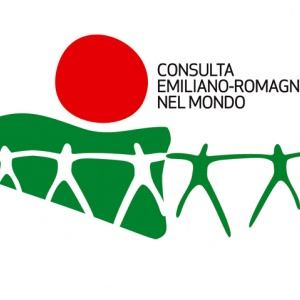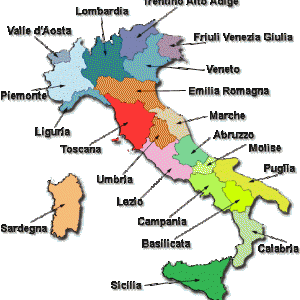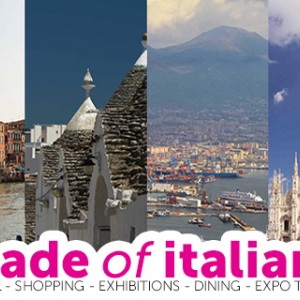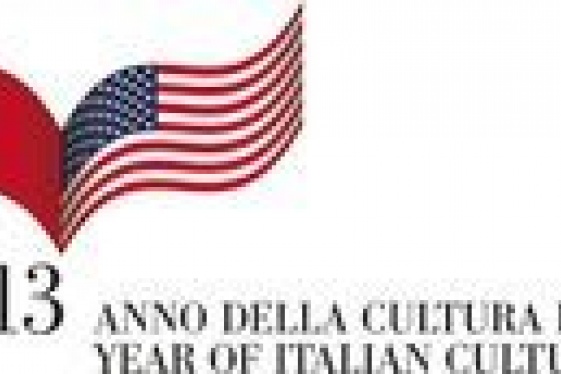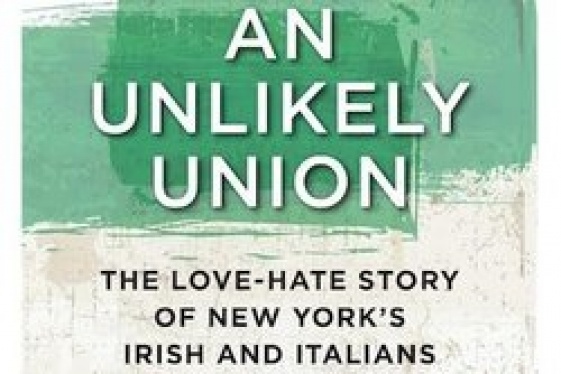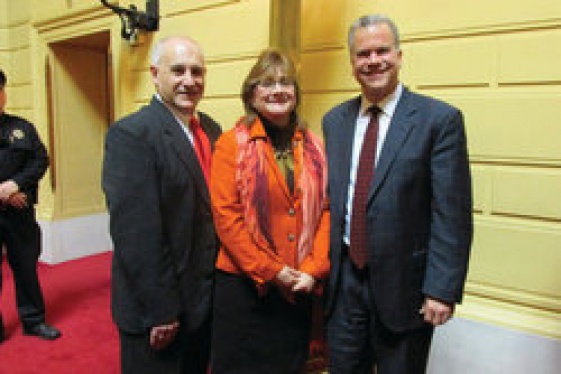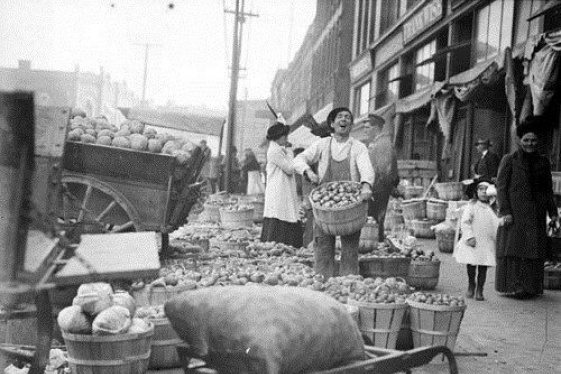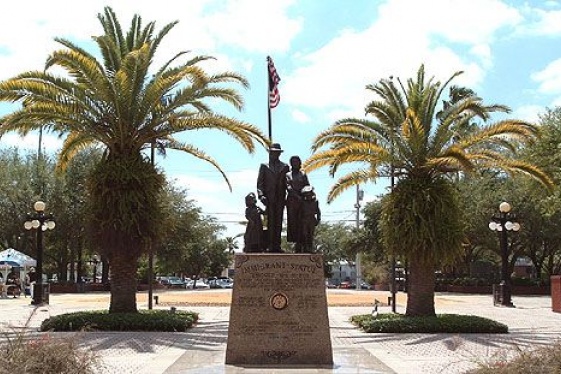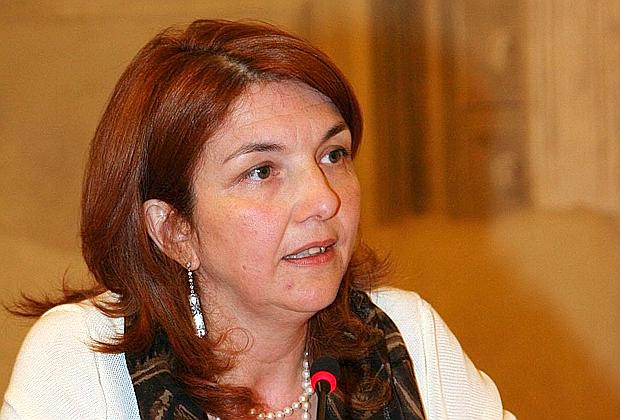
Silvia Bartolini (National Coordinator of Regional Councils for Emigration)
Il coordinamento nazionale delle Consulte regionali per l’emigrazione: incontriamo Silvia Bartolini

Every time I speak with a member of the Italian American community, what impresses me most is the reference to the region of his/her family comes from. I find it interesting as it explains very well how strong the sense of belonging to the local community is, when we speak about a quite young country such as Italy.
As a matter of fact, Italy is the culturally richest country of the world, and this cultural richness comes from many diversities from region to region. And there is an important institution- when we talk about emigration - that gathers together all Italian regions and their diversities: The National Coordination of Regional Councils for Emigration. Today, we have the pleasure to meet Silvia Bartolini, who leads this institution and is the head of the Regional Council for Emigration of Emilia Romagna.
President Bartolini, how do arise the Regional Councils for Emigration?
The Councils arose as institutional bodies in 1970, after the creation of regions. Quickly, almost all regions decided to embrace specific policies oriented towards emigrants and their families of the same region residing abroad. Besides the cultural and commercial initiatives, regions decided to create a representative and consultation entity.
In some cases, the Councils take the name of "Board" or "Commission", but they basically have the same function.
There are regions that still not have activated their own councils?
I think that the only vacant one is Valle d'Aosta. Lombardy used to have this kind of representative but it was abolished four or five years ago. The other regions have this kind of authority: some of them activated it rapidly and with a serious commitment, others still struggle to implement them, may be because of the intervention of regional administrations, which, with new elections, changes often and consequently policies change as well. Generally speaking, each Council changes with the election of the new President of Region. However, all regions, with the exception of Valle d'Aosta and Lombardy, provide this form of delegation.
Which are the principal activities conducted by the Council for the advantages of citizens of each region who live abroad?
First of all, the Council establishes a relationship and holds the contacts with all of this huge number of regional associations around the world. We have estimated around 3500 regional associations, officially recognized by regions, each of them owns a register and roll. For each of these associations is taken a census, for their role of representative body for projects, interventions, loans and activities.
These contacts lead sometimes to undertake a mission abroad which is an important phase for emigrants, who need to maintain an open dialogue with their native country.
Many Councils use the networks of associations in order to promote their own region on a tourist and economic aspect: at the moment, for instance, Expo 2015 is a great opportunity.
For all regions is important to promote the historical memory of the emigration, by conducting studies, researches and activities that reveal the emigration experience. The history of emigration is important for both regional and national prestige, as it has been significant and fundamental to bring to our citizens a feeling of real unity. Thanks to the emigrants' transfers, Italy was able to begin its economic path toward stability.
Recently, the promotion of "the Italian citizen" who lives abroad is really important, especially aimed at young people. Many regions welcome young members of regional emigrants, for making them ambassadors or promoters within the world of multicultural diversities of Italian regions. Nowadays, this is one of the expanding and growing activities.
Since when you are the National Coordinator of Councils?
I began more or less in 2008, when the Worldwide Conference of Italian Youth was hosted in Rome. At that time, there was the necessity to coordinate regions with the government and CGIE (General Council of Italians Abroad). After that, for a couple of years, the region of Piedmont was in charge, and then I took back my position - about five years ago. Since three years, we have been completely recognized by the Conference of Regional Presidents.
Could you please illustrate the relationships with the U.S. Councils that depend on your Coordination?
We have strong relationships because all regions are active with the U.S., either through the Councils or with the many associations born and spread out in different parts of the U.S. For instance, the associations of Emilia Romagna in the U.S. host many parties and in those occasions they offer scholarships for their students. Often, these associations are well organized and independent, in particular very generous in the relationship with both their members and the origin region. Therefore, Councils are the general engine and the link for establishing a solid bridge between Italy and the U.S. However, there are many associations that independently manage their own activities, especially in the U.S. They are reliable partners for the promotion conducted by the Italian regions, in relation with the support of the diplomatic network.
Recently, you have been in Chicago, where the presence of citizens from Emilia Romagna is quite strong. How did it go?
It went very well. We were there to promote two launch: one about Guareschi translated in English and one great book by the author from Modena Paolo Battaglia ""Explorers, Emigrants, Citizens", about the Italian emigration in the U.S. We seized this occasion to encourage our regional products: parmigiano, lambrusco, balsamic vinegar. Moreover, we visited our associations in Highwood, Illinois and in Wisconsin in Shulz Spur and Merill to meet new autonomous communities that celebrated their one hundred year anniversary since the emigration of our regional citizens to U.S.
We reinforced and improved our activities of institutional relationship, and commercial and cultural promotion. In this case, we drew the attention of our compatriots to the contents and opportunities of Expo 2015, both in Highwood and Chicago, inside Eataly. Together with the representatives of Expo we started discussing the important initiative "Made of Italians", which is the result of the collaboration between Expo and the Regional Councils. We decided, together with Expo organizers, to have a marketing promotion dedicated to Italians who live abroad. As the President of the Council of Emilia Romagna, I would like to emphasise, just like many of my colleagues the importance of promotions of diverse aspects of the initiative abroad.
Let's tell our readers more about Made of Italians...
Made of Italians is the web platform used by Expo 2015 through which people abroad can log in and buy tickets, as well as access special promotions available through our collaboration with Alitalia, and some other holiday packages. The site displays the logos of all regions, since the idea is to promote, along with the sale of tickets for the Expo itself, the various initiatives and activities organized in each region.
The idea is: come to Italy, visit Expo and return to your region. Councils have been proposing this slogan to associations, and many have decided to embrace it. Many Italians abroad come back to Italy steadily once a year, but in this occasion in 2015 they chave the opportunity to visit more places while taking advantage of the various initiatives offered. We see this advertising is as improvement of the associative network of Italians around the world.
Would you like to share with us an anecdote or a particular curiosity about the relationship between Emilia Romagna and the U.S.?
I have an amazing one. When we went to Cherry and Ladd, in Illinois, to visit the cemetery of miners from Emilia Romagna, victims of the mining tragedies that occurred over the last century (it's something we always do when in Illinois), we realized, around 300km out of from Chicago, that all restaurants offer the typical Emilia Romagna pasta: "tortellini in brodo". This is something that strongly impresses a Bologna native like me.
Another thing that impressed me was my meeting with the wife of the General Attorney of Ladd, whose family surname is Quarciagrossa, a name originating from the Setola suburb.
What more could Italy do for and together with its citizens living abroad?
The main aim of many of the activities of the Councils is to strengthen the trans-border connections between Italians living in the country and such living abroad. Moreover, information regarding the the historical process of emigration is spread as to raise awareness of its sociocultural significance. I believe that the network of Italian associations around the world could not only be a great platform for the promotion of economic activity, but also a fundamental tool for young people seeking professional realisation in different countries. For this reason, the Coordination of Regional Councils for Emigration is of fundamental importance and each Council is eager to contribute to it.
You may be interested
-
“The Hill” St. Louis’ Little Italy
When the fire hydrants begin to look like Italian flags with green, red and white stripes,...
-
A Week in Emilia Romagna: An Italian Atmosp...
The Wine Consortium of Romagna, together with Consulate General of Italy in Boston, the Ho...
-
An Unlikely Union: The love-hate story of Ne...
Award-winning author and Brooklynite Paul Moses is back with a historic yet dazzling sto...
-
Emanuele: cervello d'Italia al Mit di Boston
Si chiama Emanuele Ceccarelli lo studente del liceo Galvani di Bologna unico italiano amme...
-
New changes in Italian companies’ relationsh...
by Claudia Astarita Expo Training Observatory is the first Italian fair of traini...
-
Polisena delivers address as state lawmakers...
"Italian-Americans came to our country, and state, poor and proud," Johnston Mayor Joseph...
-
The “Little Italies” of Michigan
In doing reseach for this post, I was sure that Italian immigrants found their way to Detr...
-
Ybor City – Florida’s Little Italy
"The people who had lived for centuries in Sicilian villages perched on hilltops for prote...





